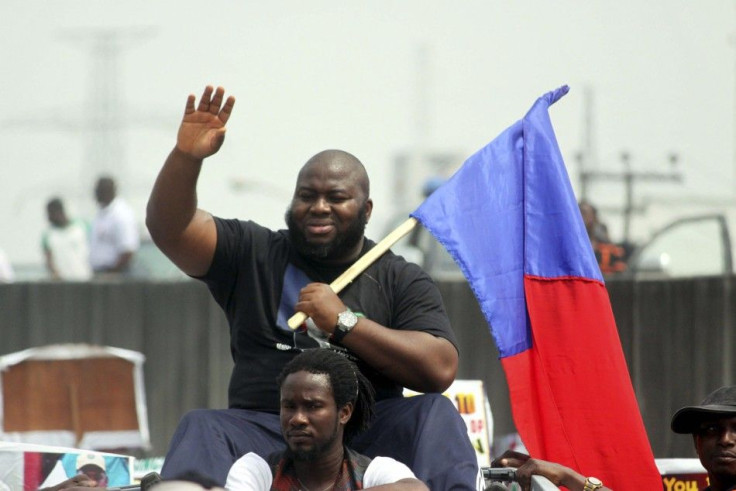Nigeria Strike: Government Proposes Fuel Price Cut

Responding to pressure from striking labor unions, Nigerian President Goodluck Jonathan agreed to cut the price of fuel, following a decision a week ago to lift a popular petrol subsidy.
Jonathan met with union chiefs over the weekend to hammer out a solution to the impasse that threatens to push the nation’s economy into collapse.
The earlier move had immediately doubled the price of oil and oil products for the country’s millions of impoverished people. The President now said that in recognition of the hardships being suffered by people, the price of petrol would drop by about 30 percent.
After due consideration and consultations with state governors and the leadership of the National Assembly, [the] government has approved the reduction of the pump price of petrol to 97 naira (about $0.60) per liter, Jonathan said in a statement.
I express my sympathy to those who were personally affected by the protests.”
The president also noted, however, that his government would continue to pursue full deregulation of the downstream petroleum sector.
He also admitted that the strike had led to the breakdown of law and order in parts of Nigeria.
Unions have yet to respond to the president’s offer; however one protest activist firmly rejected it.
The broadcast by the president was not encouraging, not inspiring and it does not change anything, Alhaji Balarabe Musa, a former Kaduna state governor, told BBC.
The strike, which has virtually paralyzed the huge nation, was met with some resistance by government forces that fired shots into the air to disperse a crowd of demonstrators in the teeming city of Lagos.
Given the likelihood of more violence in the event of more public demonstrations, some unions have asked their members to stay off the streets. Already, several people have died in street clashes, while hundreds have been injured, according to reports.
Unions maintain, however, that the strike is likely to continue, unless the government reinstates the subsidiary entirely.
Chika Onuegbu, a senior figure of the Trade Union Congress and its principal oil workers union PENGASSAN, said his group will engage in further talks with the government on Monday, according to Reuters.
It is not clear of oil production has been cut or not, despite threats by PENGASSAN.
Global oil prices rose over the weekend over fears of a reduction in Nigerian output.
Nigeria’s elimination of fuel subsidies was designed to generate $8-billion in annuals savings, money the government said would be used to pay for much-needed infrastructure improvements and social services. However, by doubling the price of petrol, the lives of millions of ordinary Nigerians were seriously hampered. Many poor Nigerians rely on fuel, not only for transportation, but also to power electric generators in their homes.
Bizarrely, although Nigeria is one of the world’s top oil producers, due to gross mismanagement and corruption, it has no capacity to refine crude oil into fuel -- thus, refined products must be imported.
© Copyright IBTimes 2025. All rights reserved.





















